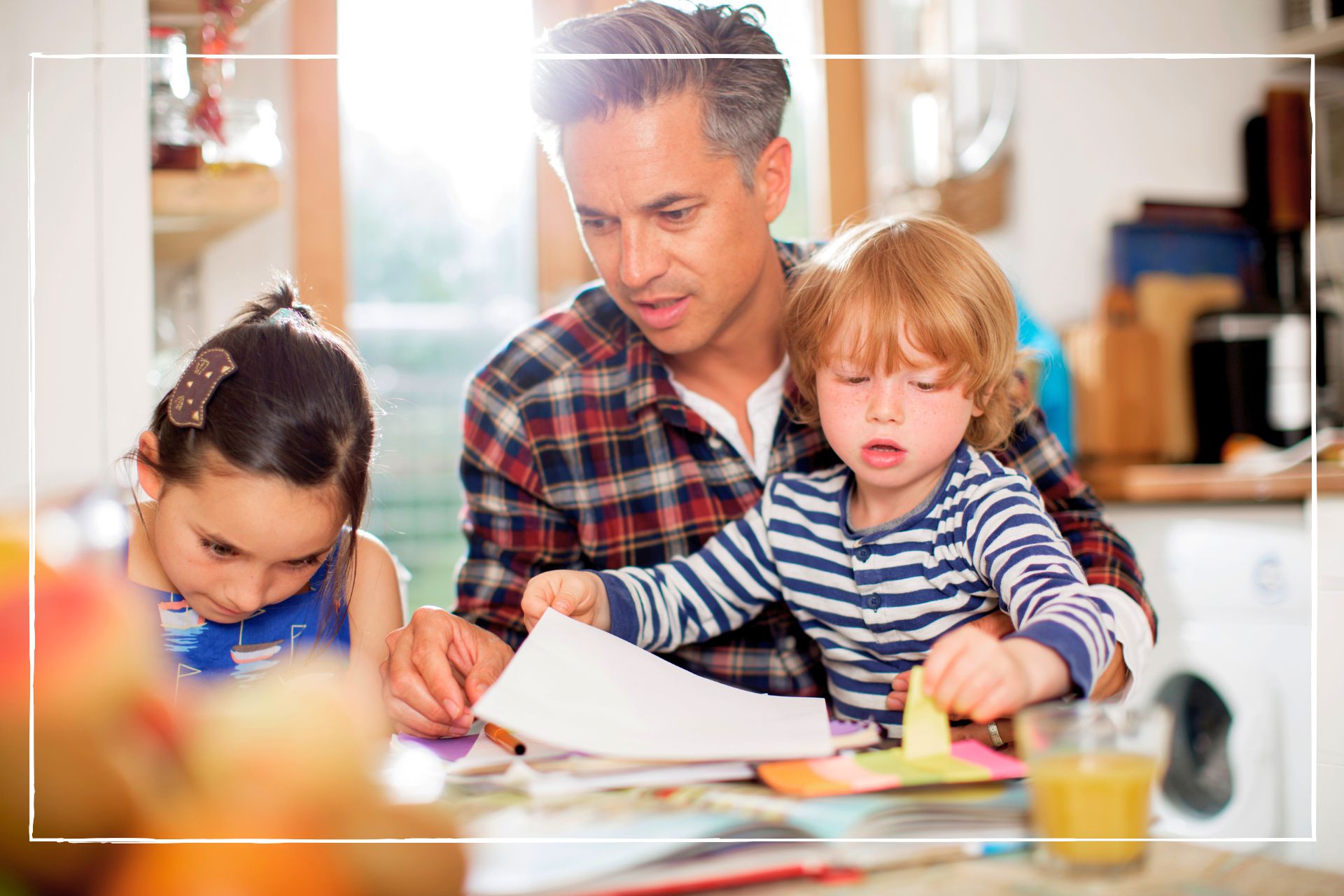Parents with ADHD raising children with ADHD: An expert shares her tips
When ADHD is a shared experience, parenting takes on a new dimension. Discover how to navigate it successfully.


Parenting advice, hot topics, best buys and family finance tips delivered straight to your inbox.
You are now subscribed
Your newsletter sign-up was successful
Being a parent is an incredible journey, but it’s not without its bumps. Add ADHD into the mix for both you and your child, and it can feel like navigating an obstacle course. It’s challenging, yes, but with the right tools and a lot of love, you can absolutely make it work.
ADHD symptoms, such as challenges with listening and organisation, can definitely make parenting trickier, and recent research suggests that ADHD often runs in families, so navigating life with a double dose of neurodiversity is quite common.. Knowing that kids with ADHD might receive more negative feedback than others adds pressure to be the best parent possible.
But it's not all bad news! With the right parenting style, you can create a more peaceful family life and build a strong bond with your child.
Why is it tough to parent a child with ADHD when you have it too?
Studies show that parents with ADHD often struggle to stay consistently on top of things, both in anticipating what’s needed and reacting in the moment. You might have trouble remembering details, staying organised, managing time or keeping calm, especially when your child has the same challenges.
It can be tough, for example, to remember to tell your child to turn off the game they’re hyper-focusing on and get ready for bed when you're also struggling with ADHD forgetfulness. Or maybe your brain is going in a million directions and you can't react fast enough when your child's doing something risky.
That's why it's so important for parents with ADHD to reach out for help. There are organisations and professionals who can teach you coping strategies to make parenting and managing your own ADHD a little bit easier.
On top of that, some parents with ADHD might also be dealing with anxiety, depression or just feeling super stressed. Parenting is already tough, but when you're managing your own ADHD and trying to help your child, it can feel overwhelming. It's a lot to juggle – taking care of yourself, supporting your child's growth, and helping them do well in school and other activities.
Parenting advice, hot topics, best buys and family finance tips delivered straight to your inbox.
So, it's super important for parents with ADHD to be kind to themselves and cut themselves some slack. Some days will be better than others when it comes to parenting, and that's okay – whether your child has ADHD or not.
5 coping strategies for parents and children with ADHD
Although living with ADHD can be challenging when it comes to parenting, specific strategies can help cope with family life better.
1. Practice self-regulation strategies
Research shows that using self-regulation strategies, like breathing exercises and grounding techniques, can really help in staying calm while parenting.
For instance, taking deep breaths can be super helpful when you're trying to keep your toddler safe during a walk along a busy street. Similarly, practicing mindfulness can make a big difference when you notice yourself getting frustrated with your child with ADHD who might be interrupting you repeatedly. These small techniques can go a long way in helping you stay cool and collected in challenging moments.
2. Remember neither you or your child can help having ADHD
It's totally normal to feel frustrated or angry sometimes, but try not to dwell on those feelings. It helps to separate yourself from the ADHD symptoms and remember that they're not who you are.
3. Follow a healthy routine
Creating a healthy routine can make a big difference in keeping things calm at home. Try to stick to regular sleep schedules, mealtimes, and make time for some exercise. A visual checklist can be a lifesaver, helping everyone in the family stay on track and work together. But remember, flexibility is key! Don't beat yourself up if you can't always stick to the routine perfectly.
4. Set clear boundaries
Make sure your child knows what's okay and what's not and be consistent with the consequences. But remember, everyone has good days and bad days. If you or your child slip up, take a moment to reflect and try to make things right.
5. Recognise your strengths
Don't forget to focus on the positives. ADHD comes with some strengths like boundless energy, creativity and the ability to hyperfocus on things you're passionate about. Celebrate those unique qualities!
What is ADHD?
Attention deficit hyperactivity disorder (ADHD) is a neurodevelopmental condition that affects how people act, focus, and control their impulses. Sometimes, kids with ADHD have parents who also have it.
It's important to remember that everyone's experience with ADHD is different, and this article is just a general guide. Parenting is complex, and there are lots of factors at play, like your culture and family dynamics.
Additional resources
- Learn how ADHD can affect your child's mental health at Young Minds
- Action For Children lists the support you can get for your child
- The ADHD Foundation has lots of resources for those with ADHD and for parents who want to understand their child better
Wondering if your child might have ADHD? Keep an eye out for these top five traits. And remember, girls with ADHD might show them a bit differently. Supporting your neurodiverse kid can be tough, but learning about emotional regulation can make a huge difference in understanding them better.

Dr Britto's qualifications include a Doctorate in Professional Educational, Child and Adolescent Psychology, an MSc in Mental Health in Learning Disabilities and a BSc in Psychology.